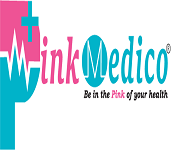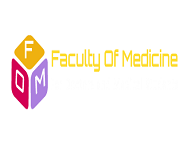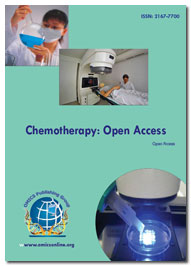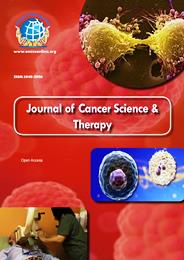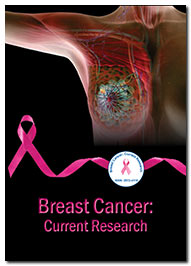Theme:
Breast Cancer Summit 2018
Conference Series llc LTD invites all the participants from all over the world to attend "9th World Congress on Breast Cancer & Therapies" during April 29-30, 2019 in Kyoto, Japan. Which includes prompt keynote presentations, Oral talks, Poster presentations and Exhibitions. The theme for the conference this year is “Advancement in Breast cancer and helping at every step of the journey” promises an outstanding scientific program featuring many well-known and thought provoking speakers.
Breast cancer is the abnormal growth of the cells lining the breast lobules or ducts. These cells grow uncontrollably and have the potential to spread to other parts of the body. Both men and women can develop breast cancer, although it is uncommon in men.
Breast Cancer summit 2019 aims to provide optimal health and healthcare to adolescent girls and women, with focus on the prevention, diagnosis of Breast Cancer, as well as related Genetics, Pathophysiology, Epidemiology, Clinical Reports etc. The shift in medicine and healthcare from management of disease towards promoting wellness is a keystone in addressing the upstream caused of disease and ensuring that all women have equal opportunities. Therefore it is very appropriate to bring together the experts in the field from all over the globe as we share experiences and knowledge and work together on reducing the risk and creating awareness of Breast Cancer.
Why to attend???
With members from around the world focused on learning about Breast Cancer and treatment and who tackle key issues facing patients throughout the continuum of the breast cancer journey ; this is your best opportunity to reach the largest assemblage of participants from the Breast Cancer community. Conduct presentations, distribute information, meet with current and potential scientists, make a splash with new discoveries in the breast cancer treatment and diagnosis, and receive name recognition at this 2-day event. World-renowned speakers, the most recent techniques, developments, and the newest updates in breast cancer, woman psychology, women disorders are hallmarks of this conference.
Target Audience:
Radiologist
Radiation Oncologist
Radiation Therapist
Medical Oncologist
Breast Care Nurse
Surgeon
Reconstructive (plastic) Surgeon
Lymphoedema Therapist
Breast Cancer Surgeons, pathologists
Nurse Practitioners/Nurses
Healthcare Faculty
Medical Colleges
Healthcare Associations and Societies
Business Entrepreneurs
Training Institutes
Manufacturing Medical Devices Companies
Data Management Companies
Key Topics:
Advanced breast cancer
Adjuvant therapy/treatment
Alopecia
Alternative therapies
Aromatase Inhibitors
Axillary dissection/clearance
Benign
Biopsy
BRCA1 and BRCA2 gene faults/mutations
Breast conserving surgery
Breast prostheses
Carcinoma
Chemotherapy
Clinical trials
Complementary medicines
Complementary therapies
Double mastectomy
Ductal Carcinoma In Situ (DCIS)
Early breast cancer
Early menopause
Hormone therapy
Intravenous infusion
Lobular carcinoma in situ (LCIS)
Lymph nodes
Lymphoedema
Lumpectomy
Mastectomy
Medical oncologist
Metastatic breast cancer
Multidisciplinary care
Neoadjuvant chemotherapy
Neoadjuvant therapy
Oestrogen
Partial mastectomy
Pathology report
Prophylactic (preventative) mastectomy
Radiotherapy
Secondary breast cancer
Sentinel node biopsy
Seroma
Survivorship
Targeted therapy
Conference Series llc LTD invites all the participants from all over the world to attend “9th World Congress on Breast Cancer & Therapies” during April 29-30, 2019 in Kyoto, Japan which includes prompt keynote presentations, Oral talks, Poster presentations and Exhibitions. The theme for the conference this year is "Advancement in breast cancer and Helping at every step of the journey” promises an outstanding scientific program featuring many well-known and thought-provoking speakers.
Breast Cancer Summit 2019 aims to provide optimal health and healthcare to adolescent girls and women, with focus on the prevention, diagnosis and management of Breast Cancer, Pathophysiology, Epidemiology , Chemotherapy, prevention and management, Clinical tails in Breast Cancer, etc.
Track 1: Breast Cancer- Present Perspective
At least one in nine women develops breast cancer at some stage in their life. About 48,000 cases occur in the United Kingdom every year. Mostly develops in women over the age of 50 but younger women are also sometimes affected. Breast cancer can also develop in men, but this is rare. Breast cancer develops from a cancerous cell which develops in the lining of a mammary duct or a lobule in one of the breasts. It follows the classic progression though it often becomes systemic or widespread in the early onset of the disease. During this period, the cancer may metastasize, or spread through lymphatics or blood stream to areas elsewhere in the body. If breast cancer spreads to vital organs of the body, its presence will compromise the function of those organs. Fatal death is the result of extreme case of vital organ function.
Track 2: Screening, Treatment, and Diagnosing Breast Cancer
All ladies should be educated by their human services supplier about the best screening choices for them. In spite of the fact that Breast growth screening can't counteract breast malignancy, it can discover breast disease early, when it is simpler to treat. Talk with your specialist about which breast screening tests are appropriate for you, and when you ought to have them. Mammograms are the most ideal approach to discover breast disease early. Having standard mammograms can bring down the danger of kicking the bucket from breast tumor. A Breast MRI utilizes magnets and radio waves to take photos of the Breast. X-ray is utilized alongside mammograms to screen ladies who are at high hazard for getting breast disease. Being acquainted with how your breasts look and feel can help you see manifestations, for example, irregularities, torment, or changes in size that might be of concern. These could incorporate changes found amid a breast self-exam. You ought to report any progressions that you notice to your specialist or human services supplier. Having a clinical breast exam or doing a breast self-exam has not been found to bring down the danger of fatality from breast malignancy. Breast Cancer Conferences | Breast Cancer Meetings | Breast Cancer Events
Track 3: Breast Cancer Nursing
Clinical implications and cancer nursing based on the rates of pain and other symptoms documented in the literature, changes in clinical practice are needed to reduce the symptom burden of residents with cancer. However, evidence-based practice standards have yet to be defined for the specific population of residents with cancer. Primary care and cancer nursing is a care delivery system that supports professional nursing practice. Within Primary Nursing, a therapeutic relationship is established between a registered nurse and an individual patient and his or her family.
Track 4: Breast Cancer- Clinical Trails
Clinical trials test the security and advantages of new medications, symptomatic strategies and screening tests. Individuals volunteer to partake in these exploration ponders. The individuals who join clinical trials advance the information base that at last enhances breast tumor mind. Whether another treatment or test turns out to be a piece of standard treatment (or conclusion or screening) for breast disease depends to a great extent on clinical trial comes about. Taking in another treatment is superior to anything the standard treatment can likewise help other people. Furthermore, as new treatments are produced, they can open ways to different medications and systems that might be much more compelling. Regularly in a breast growth treatment clinical trial, you will get either the new treatment or the standard treatment. Thus, regardless of the possibility that you don't get the new medication (or other new treatment), your breast tumor will be dealt with generally as it would on the off chance that you were not in the trial.
Track 5: Breast cancer during pregnancy
During pregnancy your breasts change in readiness for breast feeding. The breast tissue becomes more dense. This can make it more difficult to find changes in the breast that are due to cancer. The most common symptom of breast cancer is a lump. If you have a change that doesn’t go away after 2 to 4 weeks tell your doctor or midwife. Research shows that during pregnancy there is often a delay in diagnosis after women start to get breast symptoms. This is partly because breast cancer in pregnancy is so rare. It is also because the cancer can be difficult to diagnose because of the changes in the breast tissue. If the biopsy shows that you have cancer you may then have other tests to check the size of your cancer. Deciding which treatment to have and what that will mean for you and your developing baby can be very difficult. Doctors advise that your treatment should be as close as possible to what someone who isn’t pregnant would have. And whenever possible the treatment should not be delayed.
Track 6: Innovative Therapeutic Approaches in Breast Cancer
Targeted Therapies is one of the innovative in breast cancer treatment. Several clinical trials led by physician-scientists at Mass General are revealing the power of new targeted anticancer therapies in breast cancer. Everolimus is a targeted therapy that works by zeroing in on the mTOR protein, which is regulated by the family of enzymes known as PI3 kinases (PI3K). In healthy cells, mTOR is involved in cell growth, cell proliferation, protein synthesis, and many other functions. Partial Breast Irradiation many women who choose not to have a mastectomy instead undergo breast-conserving surgery where only the tumour and a small margin of tissue are removed, followed by a six-week course of daily radiation to the whole breast. Surgical Advances Two surgical advances available at Mass General are helping reduce complications and improve cosmetic appearance after breast cancer surgery. New trends to find breast cancer early, Determining the best ways for hormonal therapy, Anti- angiogenesis, Genetic risk and genetic testing (BRCA etc.), Finding new Reconstructive Surgery Approaches, Management of DCIS and ADH, Molecular Cancer Therapeutics, Targeted Therapies, Surgery for Breast Cancer.
Track 7: Breast cancer Surgery Choices
Most women with breast cancer have a kind of surgery. Surgery is often needed to discard a breast tumour. It includes breast conserving surgery and mastectomy (complete removal of breast). The breast can be reconstructed at the same time as surgery in progress and later on. Surgery is also used to find out the lymph nodes under the arm for cancer spread. It includes a sentinel lymph node biopsy when it has been affected to the lymphatic system and an axillary lymph node dissection. Mastectomy involves the removal of entire breast. When the lymph nodes have cancer cells, there might be a higher chance that cancer cells may spread through the bloodstream to vital parts of the body. Cancer cells in the lymph nodes under the arm is often an important criteria in deciding what treatment, in this case physicians prefer Lymph node surgery. Breast reconstructive therapy involves the restoration of the breast appearance after the surgery. Possible side effects may prone to manifest with women after breast cancer surgery.
Track 8: Prevention Of Breast cancer
Surgical removal of both breasts is another preventative measure in some high risk women. In those who have been diagnosed with cancer, a number of treatments may be used, including surgery, radiation therapy, chemotherapy, hormonal therapy and targeted therapy. Types of surgery vary from breast-conserving surgery to mastectomy Breast reconstruction may take place at the time of surgery or at a later date. In those in whom the cancer has spread to other parts of the body, treatments are mostly aimed at improving quality of life and comfort. The balance of benefits versus harms of breast cancer screening is controversial. Breast cancer most commonly develops in cells from the lining of milk ducts and the lobules that supply the ducts with milk. Cancers developing from the ducts are known as ductal carcinomas, while those developing from lobules are known as lobular carcinomas.
Breast cancer:
According to a new technical market research report, breast cancer diagnostic and drug technologies: global markets (HLC106A) from BCC Research the market for predictive diagnostic and drug technologies concerning breast cancer was valued at $21.2 billion in 2011. This figure is projected to reach nearly $24.1 billion in 2016, a five-year compound annual growth rate (CAGR) of 2.5%. The global market for breast cancer diagnostic and drug technologies was about $20.8 billion in 2012. This market reached about $22.3 billion in 2014 and is expected to reach $27 billion in 2019, registering a compound annual growth rate (CAGR) of 4% through 2014-2019.
*Source: BCC Research
As per the market report most of the Oncology & Women’s Health companies mainly invests in the following:
- Breast Cancer Diagnostic and Drug Technologies
- Cancer Vaccines
- Biopsy Devices
- Biological Therapies for Cancer Treatment
Breast Cancer Diagnostic and Drug Technologies:-
- The global market for breast cancer diagnostic and drug technologies was about $20.8 billion in 2012. This market reached about $22.3 billion in 2014 and is expected to reach $27 billion in 2019, registering a compound annual growth rate (CAGR) of 4% through 2014-2019.
- Breast cancer drugs as a segment will grow from $10.2 billion in 2014 to nearly $13 billion by 2019 at a 5.0% CAGR for the period 2014-2019.
- Quantitative immunofluorescence as a segment will grow from $6.5 billion in 2014 to $7.5 billion in 2019, increasing at a CAGR of 3.1% from 2014-2019.
Cancer Vaccines:-
- The global market for cancer vaccines was about $4.5 billion in 2013. This market reached about $4.0 billion in 2014 and is expected to reach $4.3 billion in 2019, registering a compound annual growth rate (CAGR) of 1.3% for the period 2014-2019.
- The United States as a segment will grow from about $1.9 billion in 2014 to $2 billion by 2019 at a 1.9% CAGR for the period 2014-2019.
- Europe as a segment will grow from $1.0 billion in 2014 to $1.2 billion in 2019, increasing at a CAGR of 3.5% from 2014-2019.
- The global market for solid organ preservation solutions totaled $459 million in 2014. This market is estimated to grow at a CAGR of 12.9% to reach $582.5 million by 2015 and nearly $1.1 billion by 2020.
Biopsy Devices:-
- The global market for biopsy devices should reach around roughly $2.1 billion by 2020 from over $1.5 billion in 2015, a compound annual growth rate (CAGR) of 6.2% from 2015 to 2020.
- The North American market should reach $868.8 million by 2020 from $663.9 million in 2015, at a CAGR of 5.5% from 2015 to 2020.
- The European market should reach $785.3 million by 2020 from $586.0 million in 2015, at a CAGR of 6.0% from 2015 to 2020.
- The global market for alternative technologies used in organ and tissue transplantation in 2014 totaled $30.5 billion. This market is estimated to grow at a CAGR of 4.6% from 2015 to 2020 to reach nearly $33.3 billion in 2015 and $41.6 billion by 2020.
Biological Therapies for Cancer Treatment:-
- The global market for biologic cancer treatment totaled $51.2 billion in 2014 and is expected to reach $66.4 billion in 2019, registering a compound annual growth rate (CAGR) of 5.4% for the period 2014-2019.
- Monoclonal antibodies as a segment will grow from around $28.5 billion in 2014 to about $37.3 billion by 2019 at a 5.6% CAGR for the period 2014-2019.
- Immunostimulants as a segment will grow from $14.8 billion in 2014 to $18.5 billion in 2019, increasing at a CAGR of 4.6% from 2014-2019.
Breast cancer Research Review:-
- Breast cancer drug markets in the Asia-Pacific region look set to rise from 2014’s $1.9 billion figure to $3.4 billion by 2021, analysts predict. Breast Cancer Therapeutics in Asia-Pacific Markets to 2020 research report says, thanks to an increasing uptake of branded drugs in Asia-Pacific (APAC), the region’s breast cancer therapeutics market value was $1.5 billion in 2013 and is estimated to reach $2.5 billion by 2020, at a Compound Annual Growth Rate (CAGR) of 7.6%.
Global breast cancer therapeutics market:-
Transparency Market Research forecasts that the global breast cancer therapeutics market is expected to be worth US$16.21 bn by 2023 as compared to US$7.17 bn in 2014, surging at a CAGR of 8.4% between 2015 and 2023. The drastically changing reproductive patterns are also responsible for soaring revenue earnings of the breast cancer therapeutics market. The delayed childbearing age, reduced breastfeeding periods, intake of oral contraceptives, and resorting to hormonal therapies to solve other medical conditions is also contributing towards the growth of this market.
*Source: Transparency Market Research
Cancer Vaccines: Technologies and Global Markets:
- The global human vaccines market was valued at US$28.3 bn in 2015 and is estimated to reach US$72.5 bn by 2024, registering an 11.2% CAGR during the forecast period. Extensive promotion and marketing strategies and favourable government support are likely to boost market growth.
- The global market for cancer vaccines was valued at nearly $4.2 billion and $4.0 billion in 2014 and 2015, respectively. This market is expected to decline from nearly $3.5 billion in 2016 to $3.4 billion in 2021 at a compound annual growth rate (CAGR) of -0.4% for 2016-2021.
Pharma Companies by oncology sales:-
The global oncology information system market is estimated to grow at a CAGR of 8.5% in the forecast period. Development of technologically advanced OIS, increasing prevalence of cancer, rapidly aging population, and increasing adoption of oncology information system are key factors fuelling growth of this market. As of 2013, Elekta AB (Sweden) and Varian Medical Systems, Inc. (U.S.) hold the leadership position in the global oncology information system market. Some of the other key players in this market are Accuray Incorporated (U.S.), Altos Solutions, Inc. (U.S.), Cerner Corporation (U.S.), Elekta AB (Sweden), Epic Systems Corporation (U.S.), Koninklijke Philips N.V. (Netherlands), and McKesson Corporation (U.S.). Market players primarily focus on the development of innovative software solutions and inorganic strategies such as acquisitions and agreements in order to ensure their growth in this market.
- Roche
- Novartis
- Celgene
- Johnson & Johnson
- Bristol-Myers Squibb
- Lilly
- Takeda
- AstraZeneca
- Merck & Co.
- Amgen
- Pfizer
Target Audience:
- Academic Research Institutes
- Hospitals and Clinics
- Business Research and Consulting Service Providers
- Medical Research Laboratories
- Academic Medical Centres and Universities
*Source: BCC Research; Transparent Market Research; Markets and Markets; MarketResearch.com
Conference Highlights
To share your views and research, please click here to register for the Conference.
To Collaborate Scientific Professionals around the World
| Conference Date | July 16-17, 2018 | ||
| Sponsors & Exhibitors |
|
||
| Speaker Opportunity Closed | Day 1 | Day 2 | |
| Poster Opportunity Closed | Click Here to View | ||
Useful Links
Special Issues
All accepted abstracts will be published in respective Our International Journals.
- Breast Cancer: Current Research
- Journal of Cancer Science & Therapy
- Chemotherapy: Open AccessHereditary Genetics: Current Research
Abstracts will be provided with Digital Object Identifier by





















